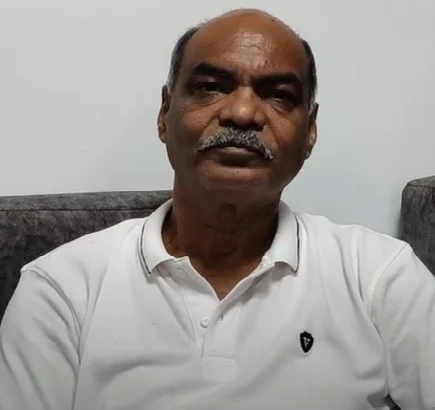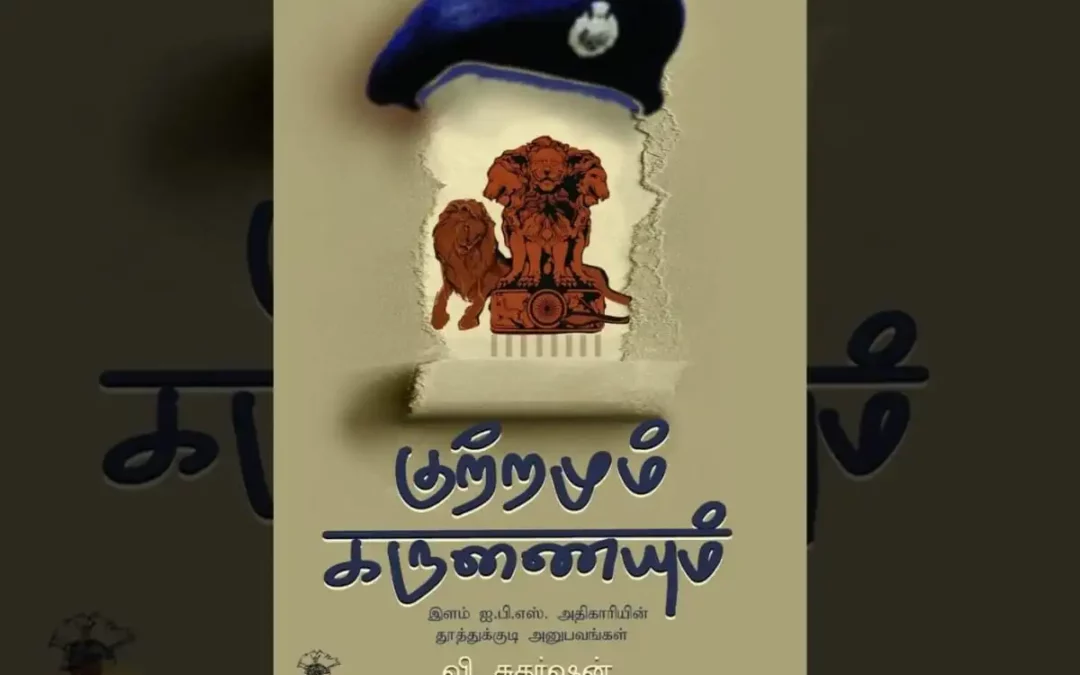Read in : தமிழ்
Thoothukudi, among other things, has a certain image associated with it. It’s the image of being a fertile ground for heinous crimes and criminals.
Serving as a policeman in Thoothukudi gave Anoop Jaiswal an opportunity to see the human side of Thoothukudi.
The book Kuttramum, Karunaiyum (crime and mercy) originally written by V. Sudarshan, a journalist, in English and translated in Tamil by M.Kumaresan and published by Kalachuvadu Publications, is by no means a piece of heroic idolatry; rather brings into spotlight unique experiences of Jaiswal who had, in his career, done certain things even celebrated heroes never dreamt of doing; that too, with ease, with an unobtrusive air.
The book feels like a cross-sectional portrait of the county, packed with several instances that bring to the fore how the ruling class tackles the man in the street. The cover has the tagline: “A young IPS officer’s Thoothukudi experiences.” But the word Thoothukudi serves more as a metaphor rather than a place; a metaphor of Jaiswal’s overall experiences he encountered during his stints at various places.
A steady and serious reading of the book throws up a man in uniform dripping with love for mankind. The narrative is interesting. A charming descriptive flow carries us into a different world.
In all, the book has 20 stories each of which presents a pen portrait of every man’s life including that of the man the whole book revolves around. The chapter conjuring up a picture of Jaiswal’s life marked by ups and downs is appropriately titled ‘Anniyan’ (Stranger). A totally honest and humane person is certainly a stranger to the world teeming with the dishonest and the unscrupulous.
The words ‘power, crime, punishment’ and ‘forgiveness’ assume refreshingly new connotations in the context of a benevolent policeman lighting the lamps of several lives.
The chapter ‘Sivalarkulam Murders’ describes how naturally a weak and timid man became powerful and vengeful when he murdered a strong man for the sake of protecting his wife. The murderer brought the chopped head to Jaiswal’s camp office. In another incident, a wife killed his morbidly prurient husband. The book is full of strange people and stranger incidents.
Also Read: In Thoothukudi, a cop found hardcore criminals were just victims
The book also bears a testimony to the fact that if an honest officer understands the law in proper light, he can do the people around a world of good.

Anoop Jaiswal
The 18th chapter is an interesting read, reinforcing the dictum that fact is stranger than fiction. Born into a middle-class family, Jaiswal joined the force as an IPS officer. At one point of time he lost his job. The Shakespearean line ‘When sorrows come, they do not come single, but in battalions,’ was vindicated when Jaiswal’s wife too lost her job in the next few months. That was obviously the most depressing moment. Yet how the man battled the heaviest odds with his hopes never sagging is narrated poignantly. Anup Jaiswal comes across as a personification of courage, confidence and grit.
The book’s start portrays a young officer in uniform bubbling with professionalism and as one travels through page after page to the finish, a man shorn of khaki appears, sporting a smile of humanism and shaking hands with us.
The book makes a paradigm shift in the wonted perception, engraved in the collective unconscious of the society, about crime and criminals. The message it gives out indirectly is that crimes must not be seen only from the perspective of law; all factors and background of the crime must be taken into account.
In the chapter ‘Meen Kuzhamppum Sorum’ (fish curry and boiled rice), one Anthony Mookan commits a murder, triggering confusion over the question if the murder, apparently a crime in the eyes of law, is really a crime when studied deeply from the humanism point of view.
Also Read: Book tells the tale of how Puducherry got its freedom
In yet another chapter, a woman approached Jaiswal to inquire about her son away in some other state employed in an establishment. After inquiries, he came to know something about the son and passed on the information to the woman who became very emotional. After a few months, the woman came back to Jaiswal to convey thanks to him and gifted him some betel leaves and areca nuts. That moved him immensely. The fact was that the police officer informed the woman of her son’s death. This incident sounds quite strange? After all, that’s all life’s made of.
The book is screenplay material. The strange people and weird happenings remind one of films such as Kovilpatti Veeralakshmi and Taanakkaaran. Will any filmmaker dare?
Read in : தமிழ்











